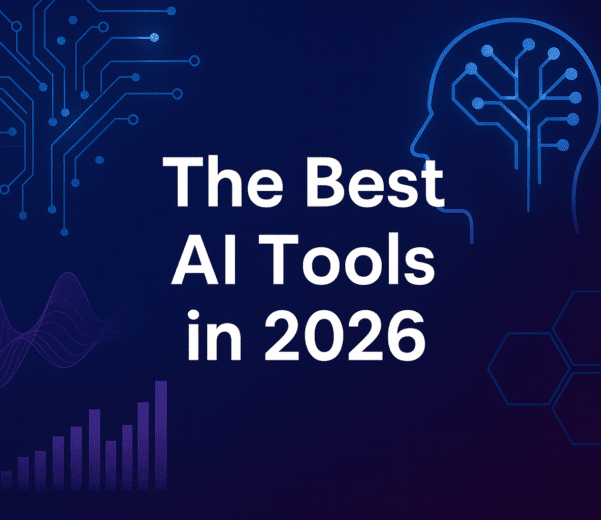AI has had a significant impact on a wide range of industries, including healthcare, finance, retail, and manufacturing. In this article, we will explore how AI is being used in each of these sectors and the potential benefits and challenges it presents.
In healthcare, AI has the potential to revolutionize the way that healthcare is delivered. In addition to its use in analyzing medical images and predicting patient outcomes, AI is also being used in a number of other areas of healthcare. For example, AI-powered virtual assistants can help patients to manage their health by providing reminders to take medication or scheduling appointments. AI is also being used to analyze electronic health records to identify trends and potential issues, such as the risk of an adverse drug interaction.
One of the key benefits of AI in healthcare is its ability to process large amounts of data quickly and accurately. This can help healthcare providers to make more informed decisions and provide better care to patients. For example, AI can be used to analyze patient data to identify patterns that may indicate a particular condition or disease, helping doctors to make a diagnosis more quickly.
There are also challenges to consider when it comes to the use of AI in healthcare. One of the main concerns is the potential for bias in the data that is used to train AI algorithms. If the data used to train an AI system is biased, the system may make decisions that are biased as well. This could lead to unequal access to care or treatment for certain groups of people. It is important for healthcare providers to be aware of this risk and to ensure that the data used to train AI systems is as diverse and representative as possible.
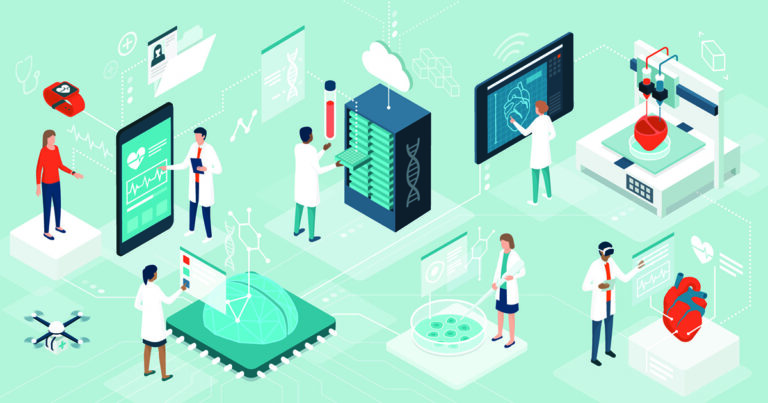
AI is also having a significant impact on the finance industry. In addition to its use in analyzing market trends and making investment recommendations, AI is also being used to automate a wide range of tasks in the finance industry. For example, AI is being used to process financial transactions, analyze credit risk, and identify fraud.
One of the main benefits of AI in finance is its ability to process large amounts of data quickly and accurately. This can help financial institutions to make more informed decisions and to better serve their customers. For example, AI can be used to analyze customer data to identify patterns that may indicate a need for a particular financial product or service.
There are also challenges to consider when it comes to the use of AI in finance. One of the main concerns is the potential for AI to be used to manipulate financial markets or to engage in fraudulent activities. It is important for financial institutions to be aware of these risks and to put safeguards in place to prevent them from occurring.
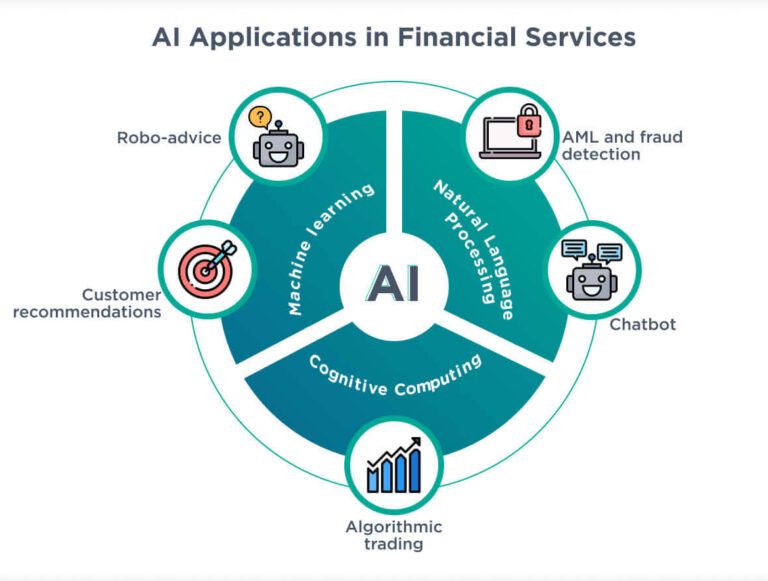
In the retail industry, AI is being used to personalize the customer experience and to improve efficiency. For example, AI-powered chatbots can help customers to find products, place orders, and resolve issues, while AI-powered recommendation engines can suggest products that a customer might be interested in based on their past purchases. AI is also being used to optimize pricing and inventory management, helping retailers to make better business decisions.
One of the main benefits of AI in retail is its ability to provide a personalized experience to customers. By analyzing customer data, retailers can tailor their offerings to the individual needs and preferences of each customer, leading to increased customer satisfaction.
There are also challenges to consider when it comes to the use of AI in retail. One of the main concerns is the potential for AI to be used to manipulate customer behavior or to engage in unethical practices, such as price discrimination. It is important for retailers to be aware of these risks and to put safeguards in place to prevent them from occurring.
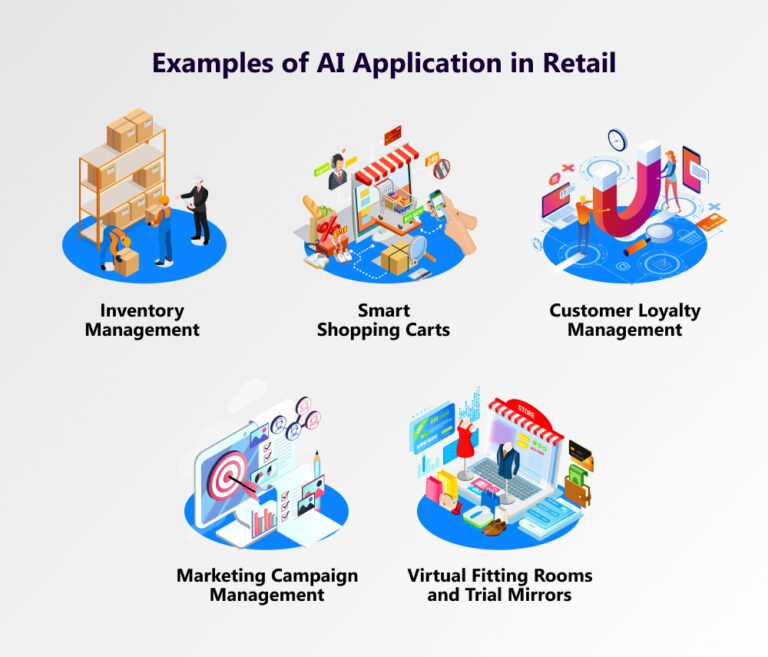
In the manufacturing industry, AI is being used to optimize production processes and improve efficiency. For example, AI can be used to monitor production lines and identify bottlenecks or defects, enabling manufacturers to take corrective action in real-time. AI is also being used to analyze data from production lines and make predictions about future demand, which can help manufacturers to better plan their production schedules.
One of the main benefits of AI in manufacturing is its ability to improve efficiency and reduce costs. By automating certain tasks and using data analysis to optimize production processes, manufacturers can increase their productivity and reduce waste.
There are also challenges to consider when it comes to the use of AI in manufacturing. One of the main concerns is the potential impact on jobs. While AI can automate certain tasks, it may also lead to the displacement of human workers. It is important for manufacturers to be aware of this risk and to consider the potential impact on their workforce when implementing AI systems.
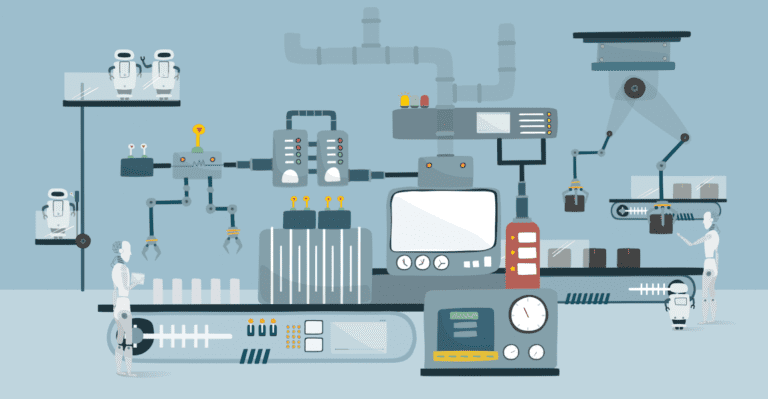
Overall, AI has the potential to bring significant benefits to a wide range of industries, including healthcare, finance, retail, and manufacturing. However, it is important to carefully consider the potential challenges and ensure that AI is used ethically and responsibly. This may require the development of new policies and regulations to govern the use of AI, as well as the creation of new roles and responsibilities to oversee its implementation. By taking these steps, we can ensure that AI is used to its full potential and that it benefits society as a whole.











